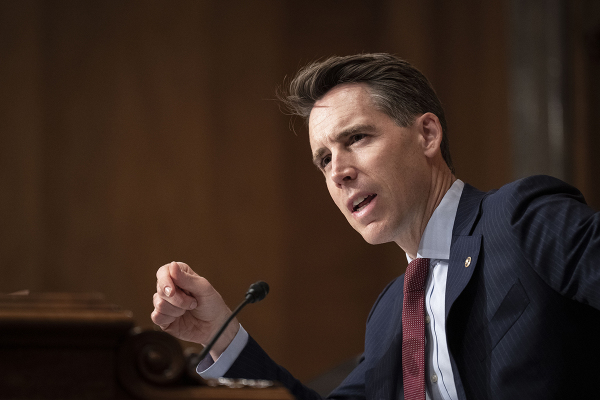Lilly Endowment Gives Christian Ministries $70 Million to Support Pastors Facing Challenges, Isolation

The Lilly Endowment has donated a combined $70 million to dozens of Christian colleges and ministries across the nation to help them establish pastor support networks and programs in 29 states.
The Indianapolis-based philanthropic organization is awarding 78 institutions nationwide grants ranging from $31,000 to $1 million through its Thriving in Ministry initiative to help develop or further programs to assist pastors in building relationships and help them deal with the wide range of issues they could face in urban, rural or suburban ministry life.
Grantees include various theological schools, faith-based colleges and universities, church congregations, denominational agencies, independent religious organizations and religious communities that span mainline, evangelical, Catholic and orthodox Christian traditions.
Azusa Pacific University, a private evangelical university in the suburbs of Los Angeles, received nearly $1 million from the endowment. The school plans to use the money to help launch a new certificate course in pastoral health that among other things will help inner city pastors deal with the trauma of urban life.
According to APU Center for Vocational Ministry Executive Director Chris Adams, the non-academic program will feature four key dimensions that studies at the "Flourishing in Ministry" program at the University of Notre Dame have found will "prevent ill being and promote wellbeing over time for pastors."
Pastors will complete the program in cohorts as they go to various retreats, seminars, workshops. Each pastor will also receive a "pastoral health coach."
Among other things, the program aims to help pastors deal with the stresses of day-to-day ministry, develop close relationships outside of the ministry, and develop a "strategic support system."
The development of the program comes as data has shown that a large percentage of pastors deal with some form of depression or anxiety.
"We are in this large, sprawling area with a lot of people. One of the challenges that come with urban ministry involves ... high exposure to trauma for clergy," Adams told The Christian Post. "It's not only their own direct exposure. Depending on what part of LA they live in, there is vicarious trauma where a lot of their parishioners are struggling with the reality of urban life and crime and all those sorts of challenges that come with big cities that suburban and rural pastors don't face. They have other challenges that are unique too."
Adams said that the APU initiative has not yet been named and it will likely to take about a year before it will be active. While the initiative likely would have been launched even without the Lilly Endowment grant, the grant has allowed APU to "significantly expand" the program with additional staff, a programing budget and a marketing budget.
"The grant certainly helps us take a quantum leap," he said.
"We have yet to do a design or price-point analysis to figure out how to make this sustainable even past the life of the grant but also accessible to a lot of the kinds of pastors we are working with in Southern California," he added. "We want it to be accessible and affordable in terms of time and money because investing in a full graduate course is not feasible for a lot of pastors."
According to the Lilly Endowment's "Thriving in Ministry" website, the "primary aim" of the initiative is to help pastors "thrive" in leading their congregations and "enhance the vitality of the congregations they serve." It seeks to provide pastors with "relationships with experienced clergy who can serve as role models and exemplars."
"Leading a congregation today is multifaceted and exceptionally demanding," Lilly Endowment Vice President for religion Christopher L. Coble said in a statement. "Pastors have shared with us that they often find themselves isolated from colleagues and sometimes struggle to keep up with new challenges posed by today's rapid pace of change."
Grand View University in Iowa, associated with the Evangelical Lutheran Church in America, received $996,038 to support the school's The Moses Project, according to the Des Moines Register.
The project aims to provide a development/mentor program for rural Lutheran pastors who are just starting out in their pastoral careers.
"The Moses Project will help rural pastors connect with other rural pastors for encouragement and renewal in order to help foster innovation in their ministries. When pastors have a vision for ministry, vitality follows," Russell L. Lackey, the chair in pastoral excellence Grand View University, said in a statement.
The nondenominational Hartford Seminary in Hartford, Connecticut, received a nearly $1 million grant from the endowment to help the school create a regional network of clergy. According to The Hartford Courant, the network will feature regular meetings, "innovation incubator" gatherings and mentoring sessions.
The Hartford program will be titled "Thriving in Poor Soil: Creating a Pastoral Innovation Network of New England Clergy." The program's goal is to tackle "the increasingly barren and infertile soil for congregations in New England."
"We hope these innovation incubator gatherings not only help clergy thrive in their ministries but also create new strategies for revitalization that will spread out to all New England religious leaders and their congregations," Scott Thuma, director of the Hartford Institute for Religion Research, said in a statement.
The Pentecostal Theological Seminary in Cleveland, Tennessee, also received a grant of nearly $1 million to support a new program called PTS Thrive, which will also assist a younger generation of pastors and theologians by facilitating mentor relationships.
"Through PTS Thrive, the seminary will partner with educational assets throughout the Pentecostal movement in an effort to assist our graduates and other new pastors, contextualize their classroom experience to the practice of pastoral ministry," Michael Baker, president of the Pentecostal Theological Seminary, said, according The Cleveland Daily Banner. "We believe this process of coaching and mentoring will demonstrate effectiveness."
Other recipients of the grants include the Wheaton College Billy Graham Center in Illinois, Gordon Conwell Theological Seminary in Massachusetts, China Evangelical Seminary of North America, the historically black women's institution Spelman College, and Anabaptist Mennonite Biblical Seminary.
Larger universities that received grants include Syracuse University, Wake Forest University, Marquette University, and Duke University. The latter will receive a grant of $2.6 million to provide resources and support other organizations involved in the initiative by convening program leaders for "mutual learning and networking."
As for denominational bodies, the United Methodist Foundation of New England, Ministers and Missionaries Benefit Board of the American Baptist Churches USA, Massachusetts Council of Churches, the Illinois Conference of the United Church of Christ, the Hispanic Baptist Convention of Texas, the Christian Reformed Church in North America, Baptist General Association of Virginia are among those receiving grants.
The progressive evangelical social justice organization Sojourners, founded by political activist Jim Wallis, is also listed as a grant recipient.
Over 590 organizations submitted grant proposals for Thriving in Ministry initiative.
The Lilly Endowment has made "strengthening pastoral leadership in Christian congregations" a priority in its grant making for over 25 years, according to a press release.
Adams praised the Lilly Endowment for its generosity and stated that the endowment is a "catalyst for innovation and collaboration" that wouldn't necessarily occur without its support. He also praised Lilly's sabbatical and "clergy renewal" programs.
"Their sabbatical program they have funded does enable a lot of things that churches and denominations and Christian higher education institutions would not be able to afford to do without their generosity," Adams said.





















